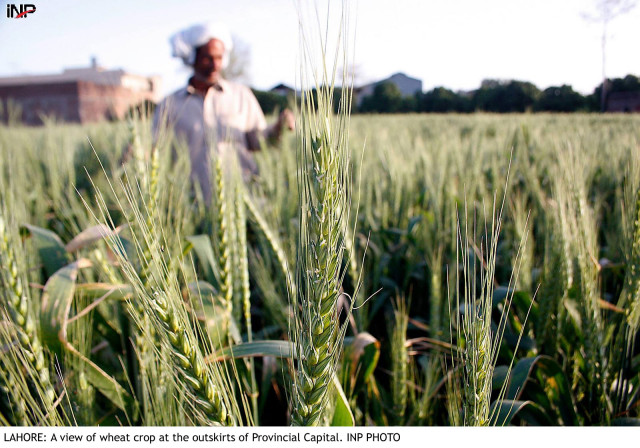Cutting-edge technology: Research to enable cultivation of crops with seawater
KU's scholars engaging in research to find solution to the world's food problem

"The country is already suffering from water shortage," he explained. "Global warming will cause massive droughts across the world over the next 20 years. Socio-economic development is no longer dependent on natural resources. Knowledge has become the main driving force for world economies."
Dr Rahman was delivering an online lecture, titled 'The Thrilling World of Discovery' at Prof Salimuzzaman Siddiqui Auditorium, the International Centre for Chemical and Biological Sciences (ICCBS), University of Karachi (KU). The lecture was organised by the National Academy of Young Scientists, Pakistan, in collaboration with the ICBSS on the occasion of World Science Day for Peace and Development.

Dr Rahman, who is also former chairperson of the Higher Education Commission of Pakistan, said that scientists at the ICCBS were working tediously on various topics, while research on Biosaline Agriculture was a part of these efforts. He said that the establishment of the Jamilur Rahman Centre for Genomic Research at ICCBS will help the scientists engaged in research work on the topic.
Dr Rahman added that countries such as China, Singapore, Korea and Taiwan had realised the importance of knowledge and had made great progress. He advised that Pakistan needed to follow the footprints of these countries to achieve advancement on the economic front.
"The world has made wonderful progress in the field of science and technology," he said. "By using nanotechnology, bulletproof papers are being made which are stronger than steel. These papers are being used to make bulletproof jackets."
Dr Rahman also reminded the audience about the progress made in the field of science and higher education, when he was chairman of the HEC and the federal minister for science and technology. "The country's budget for science and technology saw an increase of about 6,000 per cent."
Nearly 11,000 scholars were awarded PhDs, post-doctoral certifications and split PhDs. Most of these scholars were sent to Europe for higher leaning.
Published in The Express Tribune, November 18th, 2014.



















COMMENTS
Comments are moderated and generally will be posted if they are on-topic and not abusive.
For more information, please see our Comments FAQ